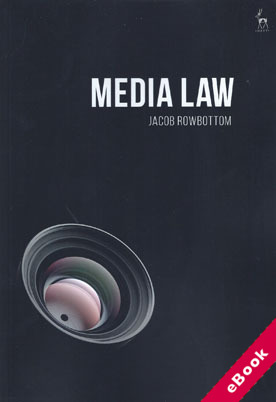
The device(s) you use to access the eBook content must be authorized with an Adobe ID before you download the product otherwise it will fail to register correctly.
For further information see https://www.wildy.com/ebook-formats
Once the order is confirmed an automated e-mail will be sent to you to allow you to download the eBook.
All eBooks are supplied firm sale and cannot be returned. If you believe there is a fault with your eBook then contact us on ebooks@wildy.com and we will help in resolving the issue. This does not affect your statutory rights.
Media law is a fast-developing area of scholarship that raises many high-profile and controversial issues. Recent issues include the use of privacy injunctions in the digital era, the regulation of the press after the Leveson Report, the political power of media moguls, the mass leaks of government information and the impact on national security, and the responsibility of the digital media to prevent the spread of harmful content posted by others.
This book looks at these issues and other themes and debates in media law. The book includes chapters examining the protection of personal rights of reputation and privacy, the administration of justice, the role of government censorship, the protection of the newsgathering process, the regulation of the media and the impact of the digital media. The analysis is grounded in an account of media freedom that looks at the important democratic functions performed by the media and journalism.
The book asks whether the law strikes the right balance in protecting media freedom while preventing the abuse of media power, and considers the future of the media law in the digital era. It is essential reading for students and scholars of medial law alike.